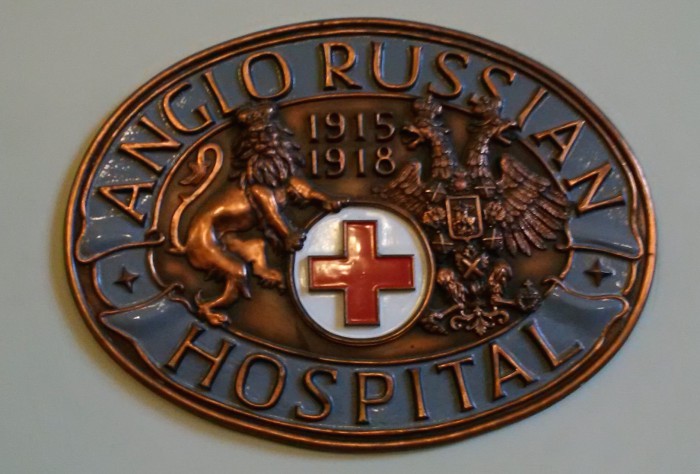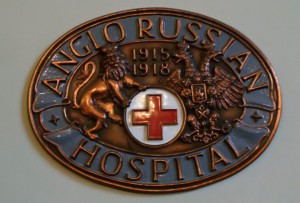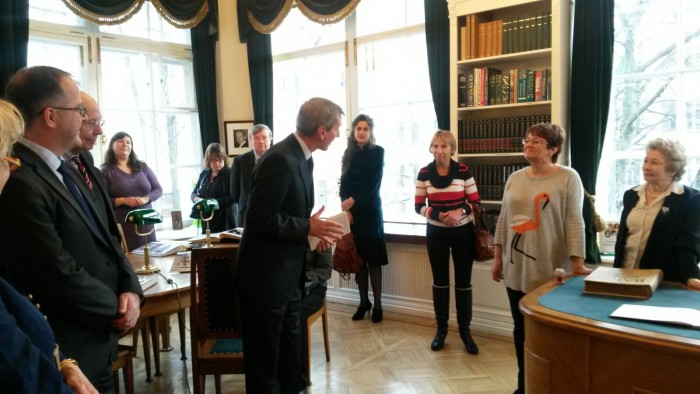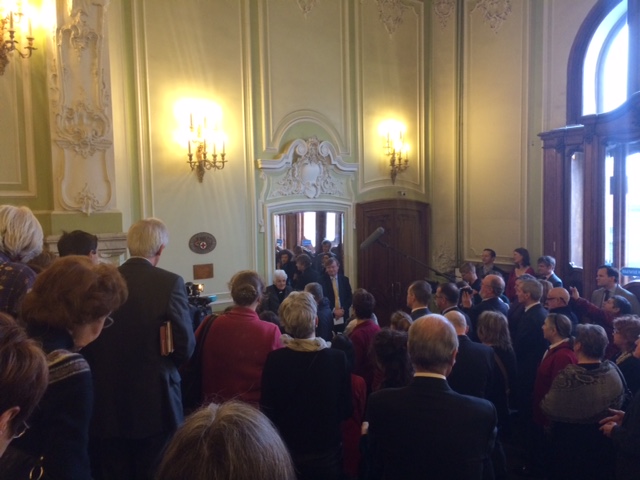4th February 2016
The 100th Anniversary of the Anglo-Russian Hospital in St Petersburg, Russia

I was delighted to accompany the new British Ambassador to Russia, Laurie Bristow, to an event to commemorate the 100th anniversary of the Anglo-Russian Hospital in St Petersburg on 30 January. The fascinating story of the hospital is another fine example of the importance of people to people contacts between British and Russian people during the most difficult days of World War One.
The London Committee on the establishment of the Anglo-Russian Hospital in Petrograd was created in August 1915 under the patronage of HM Queen Alexandra. Lady Muriel Paget was appointed Honorary Organising Secretary. The hospital had been proposed by the Foreign Office, funded by public subscription, and supported by a large donation by the British Red Cross Society (BRCS) and other organisations. The British Red Cross Society supported the hospital but it was not considered an ‘official’ BRCS hospital.
An advance party left Newcastle for Petrograd in October 1915. The party included Lady Muriel Paget and her colleague Lady Sybil Grey, the two key people involved in organising and running the hospital. The Dmitri Palace was formally offered as the ‘base’ hospital in Petrograd on 24 October 1915. The Palace was then converted into a hospital during November and December 1915. The official opening of the hospital by the Grand Duchess Marie Pavlovna took place on 1 February 1916. It closed in January 1918 as conditions became too difficult following the revolution.
During the 11 months between November 1915 and October 1916 more than 6,000 patients received treatment in the Anglo-Russian hospitals (and field camps) in Russia, including at the base hospital in St Petersburg. A memorial plaque was hung in the entrance hall of the Dmitri Palace, now known as the Beloselsky-Belozersky Palace, in 1996.

The history of the hospital is recorded in Michael Harmer’s excellent book written in 1982, ‘The Forgotten Hospital’. Harmer’s father was a member of the medical staff in Petrograd. We were delighted that Michael Harmer’s son and other descendents of key people involved in the hospital were able to attend the event on 30 January. We paid a separate visit with some of the descendents to the Galitzine Memorial Library, which has a rich collection of English and Russian language books on Russia. The Ambassador presented a signed presentation copy of ‘The Forgotten Hospital’ to the library.

The driving force behind this event was Dr Pauline Monro MBE MD FRCP, a British neurologist who has long-standing connections with the medical community in Russia. Pauline demonstrated incredible determination and enthusiasm to organise and run this event as a way of honouring and remembering the important role played by the hospital in Russia during World War One. We are also grateful for the support of the administration of the Beloselsky-Belozersky Palace. The beautiful memorial plaque in the entrance hall is a very fitting reminder and is seen by those who attend the many concerts and other events at the palace.

Russia and the UK have a very long and rich historical relationship. The Anglo-Russian Hospital in Petrograd will continue to hold a very special place in the history of this relationship and underline the importance of our shared history and people to people links.
My great aunt, Maud Mary Carter, was as VA D staff nurse at the Anglo,Russian Hospital, on 24 June 1916, from East Upton, Ryde, I O W, where she was based, possibly servingat Hazlewood Hospital or the Castle, then a convalescent home. I am trying to find out if she received training at St. Mary’s Hospital, Paddington, then a convalescent home specialized in prosthetic limbs for the injured in 1914, in the vicinity of her family home where she was living in 1901 at the age of 25. I have contacted the Discovery team at the National Archives. She may have been staying with a relative in Ryde, sometime after her training.
I am trying to trace my great aunt, Miss Mary M. Carter, who as V A D at your hospital in June 1916, and wonder in what capacity – would much any assistance you may be able to offer – she fled Moscow in 1917 the uprising via Vladivostok and by ship to USA back to London.
Thank you for the article. It was a memorable visit by the descendants of the ARH staff to St Petersburg. We look forward to the next event commemorating the Hospital at the Royal College of Nursing on 7 April.
Excellent article Keith. We discovered Richard Paget has a Kirkcudbright connection when we chatted with him at the ceremony !